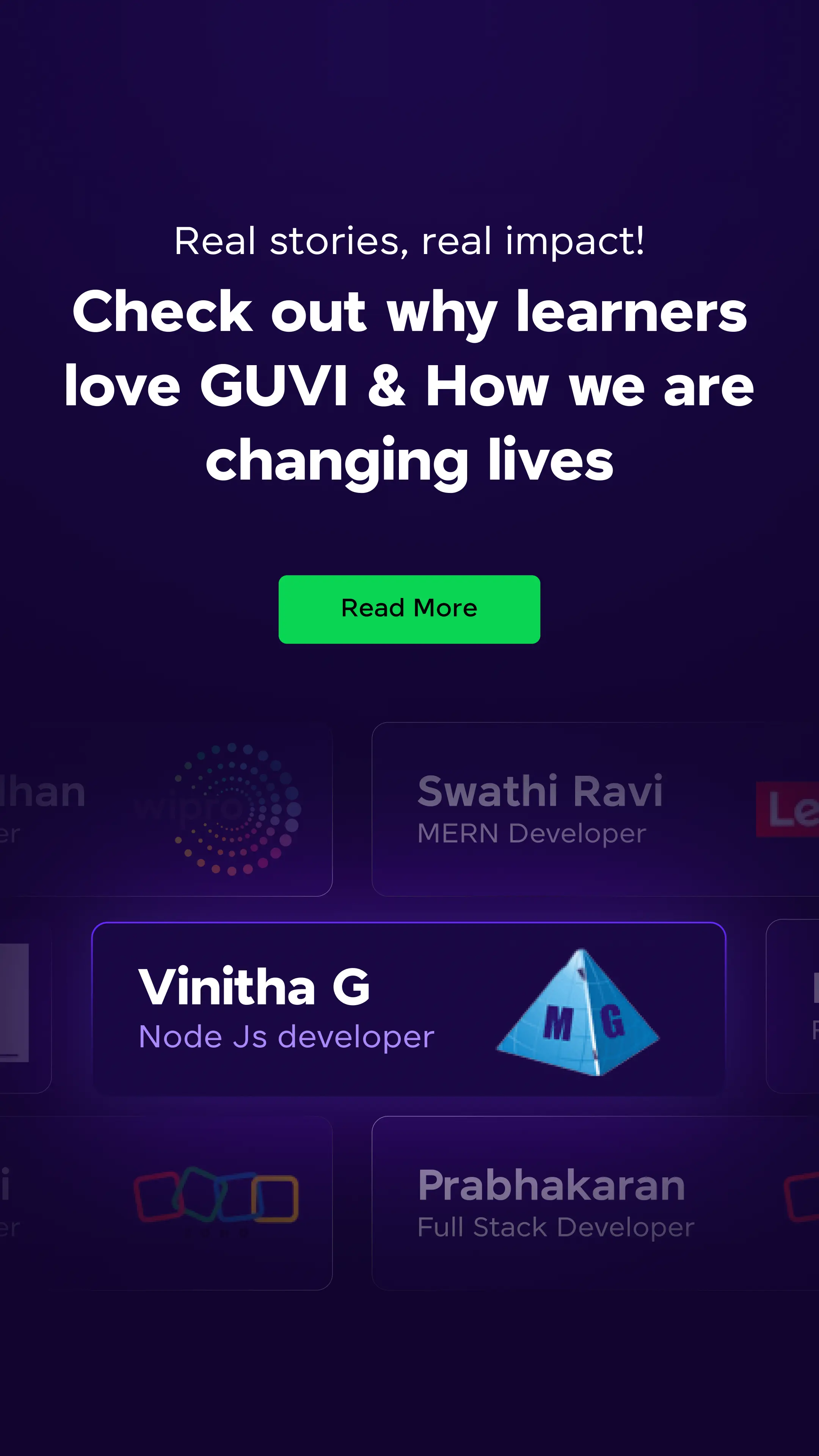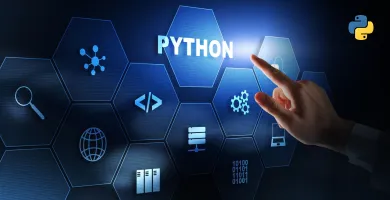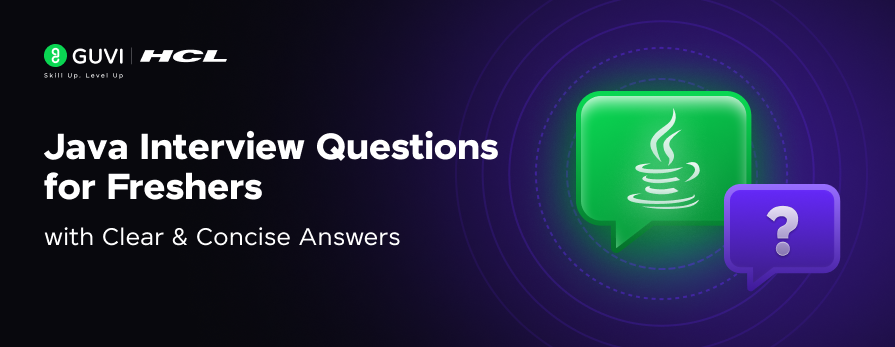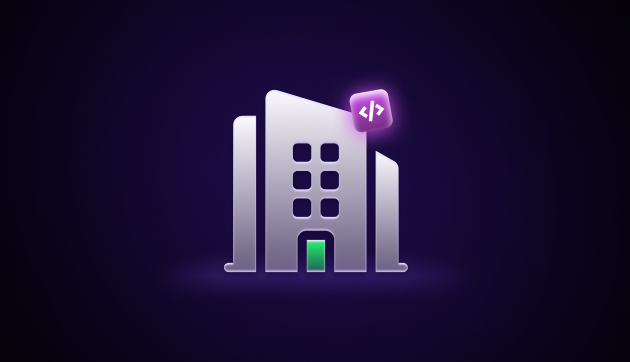
Blockchain Developer Salary: A Complete Guide
Oct 09, 2025 5 Min Read 6504 Views
(Last Updated)
Curious how much blockchain developers earn in today’s Web3 world? Wondering if it’s the right time to switch or start your career in blockchain development?
As cryptocurrencies, NFTs, and decentralized applications continue to disrupt industries, the demand for blockchain talent is skyrocketing. With companies offering premium pay for skilled developers, now might be the best time to explore this futuristic and high-paying career path.
In this blog, we’ll decode the blockchain developer salary, what skills you need, factors that influence your pay, and how you can start your career in blockchain, even if you’re starting from scratch.
Table of contents
- Why Blockchain Developers Are in High Demand
- Decentralization is the future.
- Big brands are going all-in.
- There’s a massive talent gap.
- Blockchain Developer Salary in India
- Entry-Level Blockchain Developer (0–2 Years)
- Mid-Level Developer (2–5 Years)
- Senior Blockchain Developer (5+ Years)
- Remote vs In-House Roles
- Factors That Influence Blockchain Developer Salary
- Experience Level
- Technical Skillset
- Domain of Application
- Company Type
- Location & Remote Opportunities
- Certifications
- Who Should Consider a Career in Blockchain?
- Working Professionals
- Students & Freshers
- Tips to Accelerate Your Blockchain Developer Salary
- Build & Showcase Real Projects
- Contribute to Open Source
- Stay Updated with the Ecosystem
- Get Certified
- Master In-Demand Tools
- Apply for Remote Web3 Gigs
- Negotiate Smartly
- Wrapping Up
- Frequently Asked Questions
- What is the average salary of a Blockchain Developer in India?
- How long does it take to become job-ready in Blockchain development?
- Is blockchain development limited to cryptocurrency?
- Are remote opportunities available for Indian blockchain developers?
- Is blockchain development future-proof?
Why Blockchain Developers Are in High Demand
Blockchain is not just about cryptocurrencies. It’s transforming finance, supply chains, healthcare, identity verification, and even digital art (NFTs). This growing demand for decentralized systems has opened the doors for developers who can build secure, scalable blockchain apps.
Here’s why it’s booming:
Decentralization is the future.
The rise of Web3, Decentralized Finance (DeFi), and Non-Fungible Tokens (NFTs) has fundamentally changed how data, assets, and identities are stored and managed online. These innovations are not just trends; they’re building blocks of a decentralized digital economy, and blockchain developers are at the heart of this transformation.
Big brands are going all-in.
Tech giants and global enterprises such as IBM, Meta (Facebook), Mastercard, and even government entities are actively integrating blockchain into their operations, whether for secure data sharing, digital identity, or smart contracts. Their involvement signals long-term commitment and massive hiring potential for developers.
There’s a massive talent gap.
Despite the hype, skilled blockchain developers remain scarce, making them highly valuable in the job market. This shortage directly contributes to higher salaries, generous stock options, and remote opportunities, especially for those who upskill quickly and stay current with emerging blockchain frameworks and platforms.
Discover: Top 8 Blockchain Project Ideas in 2025 with Source Code
Blockchain Developer Salary in India
Let’s dive into how blockchain developer salaries vary based on experience level, job roles, and working models, from freshers to seasoned experts, and from in-office to remote opportunities.
Entry-Level Blockchain Developer (0–2 Years)
Freshers or professionals switching to blockchain can expect an average salary of ₹7.5 LPA. Those who have worked on smart contract projects using Solidity or built DApps in their spare time are often offered higher packages.
Tip: Build a few end-to-end DApps (like a voting system or token exchange) and host them on GitHub.
Mid-Level Developer (2–5 Years)
Professionals with solid knowledge of Ethereum, Solidity, smart contract audits, and integration with front-end (Web3.js, Ethers.js) can earn an average of ₹14.2 LPA.
They usually work for blockchain startups, crypto exchanges, or tech consultancies offering Web3 solutions.
Senior Blockchain Developer (5+ Years)
Experienced developers who can architect decentralized apps, lead teams, and integrate blockchain with cloud platforms or AI systems earn ₹13 LPA to ₹35 LPA+.
Some move into CTO roles, tokenomics consulting, or even found their crypto projects.
Remote vs In-House Roles
One of the most exciting aspects of a blockchain career? It’s globally in demand.
- Remote developers working with global Web3 firms (US, Germany, Singapore) can earn 2x–4x more than local roles.
- Platforms like Toptal, TalentLayer, CryptoJobsList, and AngelList actively hire Indian blockchain talent for international gigs.
Fact: According to Glassdoor, top blockchain developers globally can earn up to ₹80 LPA, especially in DeFi, NFT, or security audit roles.
Also Read: Best Books to Learn Blockchain [Updated]
Factors That Influence Blockchain Developer Salary
From your technical expertise and industry experience to the type of company and location you work in, several elements combine to determine how much you can earn as a blockchain developer. Let’s break down these factors and see where you can maximize your value.
1. Experience Level
Just like any tech role, your experience is a major determinant of your salary as a blockchain developer. Entry-level developers with 0–2 years of experience typically focus on writing smart contracts, maintaining blockchain nodes, or assisting in DApp development. As developers gain more experience (3–5+ years), they’re expected to architect secure blockchain systems, lead integrations with traditional databases, and manage entire blockchain ecosystems. Naturally, with each level of responsibility, the compensation also scales; senior developers often command 2–3x more than entry-level professionals.
2. Technical Skillset
The more specialized and up-to-date your skills are, the higher your market value. Mastery of Solidity, Rust, or Vyper for smart contract development, as well as hands-on experience with platforms like Ethereum, Polygon, Solana, and Hyperledger, significantly boosts your earning potential. Knowledge of cryptographic principles, consensus algorithms, and distributed systems adds extra weight. Developers who can also integrate blockchain with traditional frontend (React, Angular) or backend (Node.js, Go) frameworks are even more valuable.
Read More: Non-Coding Jobs in Blockchain: Exploring Opportunities Beyond Tech
3. Domain of Application
Blockchain is not just about cryptocurrency. Salaries vary based on the domain in which blockchain is applied. For example, developers working in DeFi (Decentralized Finance), NFT marketplaces, or blockchain gaming often command higher salaries due to the revenue-generating potential of these sectors. On the other hand, blockchain roles in supply chain, logistics, or healthcare may offer moderate pay but greater job security and long-term stability.
4. Company Type
Working at a global tech giant or well-funded Web3 startup can dramatically affect your paycheck. MNCs like IBM, Meta, and Mastercard are actively investing in blockchain solutions and offer generous packages to attract top talent. On the flip side, early-stage startups may offer lower base pay but compensate with equity or crypto tokens, which can appreciate. Freelancing or working for DAO (Decentralized Autonomous Organizations) may also offer flexible, high-paying gigs based on smart contract deployments or consulting.
5. Location & Remote Opportunities
Blockchain is global, and location no longer limits opportunity. Developers based in India can earn significantly more if they work remotely for companies in the US, UK, Germany, or Singapore. While in-house roles in Indian metros (like Bengaluru or Hyderabad) average ₹6–12 LPA for mid-level developers, remote roles for international Web3 projects can fetch anywhere from ₹20 LPA to ₹60 LPA.
6. Certifications
While blockchain is still a skill-first domain, holding certifications from reputable platforms like HCL GUVI can help negotiate higher salaries, especially during career transitions. Additionally, an active presence on GitHub, contributions to open-source projects, and writing technical blogs or participating in hackathons signal your credibility and can open doors to high-paying roles.
Who Should Consider a Career in Blockchain?
As blockchain continues to reshape how data, money, and value are exchanged in the digital world, now is the perfect time to explore whether a career in this domain aligns with your goals. Here’s who can benefit most from diving into blockchain development:
Working Professionals
If you’re currently working in manual testing, tech support, data entry, or even non-technical IT roles, transitioning into blockchain development can significantly boost your career prospects and salary. Many professionals feel stuck in repetitive tasks with limited growth. Learning the basics of blockchain, smart contracts, and Web3 technologies can be your ticket to a more engaging and future-proof career.
You don’t need to become an expert overnight; many professionals land junior blockchain roles or internships within 6 to 9 months of consistent learning. With foundational knowledge in Solidity (the language for Ethereum smart contracts) and some basic coding experience, you can break into the field and continue to grow.
Students & Freshers
If you’re a college student or recent graduate wondering which direction to take in your career, especially if you’re from non-CS streams like mechanical, civil, or electrical, blockchain development offers an exciting alternative. Unlike traditional tech paths that can feel saturated, blockchain is still emerging and rapidly evolving.
It’s ideal for tech-savvy students who are curious about innovation, decentralization, cryptocurrencies, or NFTs. Plus, blockchain roles are coding-intensive and often pay better than standard entry-level IT jobs. By starting early, you position yourself at the forefront of a booming industry with global opportunities and a massive talent shortage.
Tips to Accelerate Your Blockchain Developer Salary
Breaking into blockchain is one thing, scaling your salary is another. In a competitive and evolving field like Web3, how you position yourself directly impacts how much you earn. Here are some strategic tips to fast-track your career and command a higher salary:
Build & Showcase Real Projects
Start by building smart contracts, dApps (decentralized applications), or NFT platforms, even basic ones. Host your code on GitHub and create a sleek portfolio website to show off your technical skills. Recruiters and clients love tangible proof of your capabilities, especially in a practical field like blockchain.
Read More: Blockchain Developer Resume Guide: 11 Hot Tips to Make It Professional
Contribute to Open Source
Engage with real-world protocols like Uniswap, Aave, or Chainlink. Even small pull requests or documentation updates count. Contributing to open-source Web3 projects builds credibility and exposes you to production-grade codebases, while also putting your name out there in active developer communities like DAOs.
Stay Updated with the Ecosystem
Blockchain is fast-moving. To stay ahead, join communities on Telegram, Discord, and Reddit related to Web3, DeFi, and NFTs. These platforms often list hackathons, job opportunities, and the latest protocol updates, keeping you in sync with where the industry is heading.
Get Certified
Structured learning always helps, especially when it’s backed by credibility. Get certified through platforms like HCL GUVI (IITM Pravartak Certified Blockchain Course). Certifications prove to employers that you’re serious about your craft and increase your chances during salary negotiations.
Master In-Demand Tools
Learn beyond just Solidity. Tools like Hardhat, Truffle, Chainlink, IPFS, and The Graph are crucial for real-world development. The deeper your understanding of the full Web3 stack, the more valuable (and versatile) you become as a developer.
Apply for Remote Web3 Gigs
The blockchain world thrives on decentralization, including how teams work. Remote opportunities often pay in USD or crypto and offer much higher compensation than local roles. Explore platforms like CryptoJobsList, Remote3, Web3.career, and Gitcoin to find remote gigs from global startups and DAOs.
Negotiate Smartly
Know your worth. Research the average salaries on Glassdoor, Levels. fyi, or Talent.com. Be prepared to negotiate, especially if you have rare skills like Layer 2 knowledge or experience with specific DeFi protocols. Don’t undervalue yourself just because you’re new, your skillset is in demand.
Explore: 30 Blockchain Developer Interview Questions and Answers
Wrapping Up
Blockchain is no longer just the backbone of cryptocurrencies, it’s powering the next generation of the internet. With global adoption on the rise and new applications emerging daily in finance, healthcare, gaming, and governance, the demand for skilled blockchain developers continues to surge.
The best part? The field is still young, meaning early adopters are reaping huge rewards. Start small, build a smart contract, contribute to an open-source Web3 project, or earn a reputable blockchain certification. Every step you take now can accelerate your transition into this booming industry. So, what’s stopping you? Take that first step today, your dream tech career might just be on the other side!
Frequently Asked Questions
What is the average salary of a Blockchain Developer in India?
The average salary for a Blockchain Developer in India is ₹9.7 Lakhs, depending on experience, skillset, and whether you’re working for a startup, MNC, or global remote company.
How long does it take to become job-ready in Blockchain development?
With focused learning and project building, you can become job-ready in 6–9 months. Starting with Web3 fundamentals and Solidity is a good path for most learners.
Is blockchain development limited to cryptocurrency?
Not at all! Blockchain is used in supply chain, finance (DeFi), gaming, identity verification, real estate, and even voting systems. The technology has widespread applications beyond crypto.
Are remote opportunities available for Indian blockchain developers?
Absolutely. Many global Web3 startups and DAOs prefer hiring remotely. Indian developers often earn 2x–4x more through international freelance or full-time remote gigs.
Is blockchain development future-proof?
Yes! As industries continue to adopt decentralized solutions, the need for skilled blockchain professionals is only going to rise, making it a smart long-term career choice.




































Did you enjoy this article?